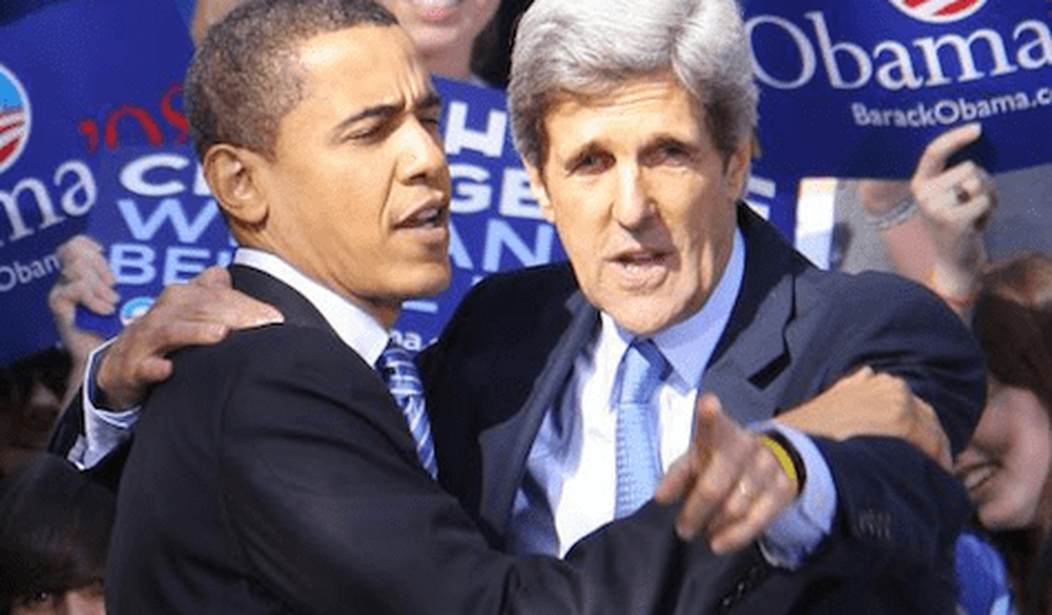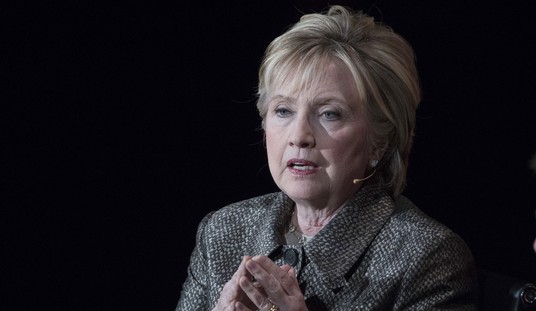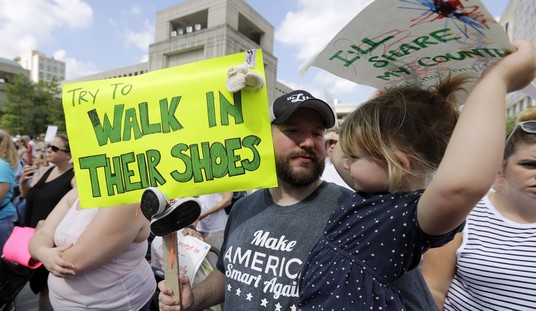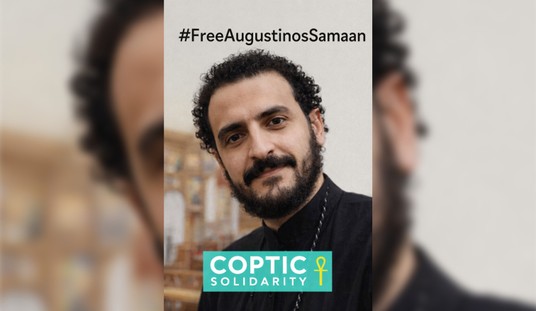With a rise in anti-Semitism around the globe, and with the increasing phenomenon of anti-Semitism written off as legitimate anti-Israeli sentiment, the post of the Special Envoy to Monitor and Combat Anti-Semitism was created by an act of Congress during the George W. Bush administration.
“The Special Envoy develops and implements policies and projects to support efforts to combat anti-Semitism,” says the State Department’s job description.
Secretary of State John Kerry’s appointment today to the position is a man steeped in experience in combating the Republican Jewish Coalition.
Longtime Dem operative Ira Forman was executive director of the National Jewish Democratic Council from January 1996 through June 2010 and Obama’s Jewish outreach director for his 2012 campaign. In the early 1990s, he worked in the Clinton administration as director of congressional relations at the Office of Personnel Management.
One of Forman’s key jobs in his subsequent lobbying role was tangling with anyone who tried to show Jewish voters that the Democratic Party, and then the Obama administration, had grown dangerously out of touch with their concerns and dangerously distant from the U.S.-Israel special relationship.
A month before election day in 2008, Forman accused the RJC of plumbing “the depths of the political sewer with their anti-Obama smear campaign.”
“Guilt by association is a seriously flawed method of determining a candidate’s policy views toward Israel. There are literally thousands of friends or supporters of each candidate,” Forman wrote in defending candidate Obama from RJC ads about his Mideast policy advisers. “It is not difficult for opposition research to comb through these associations and come up with someone who is less than ‘kosher’ on almost any issue– it is like shooting ducks in a barrel.”
He also lashed out at Majority Leader Eric Cantor (R-Va.) for expressing concern about Obama’s Mideast peace plan push during a 2009 congressional delegation to Israel and called the Jerusalem Post‘s Caroline Glick “a desperate ideologue armed with a minimal amount of knowledge.”
Forman’s first act will be to join a group of imams to visit the site of the former Nazi death camp at Auschwitz, the State Department said today.
He’ll then continue on to the International Conference of the Global Forum for Combating Anti-Semitism in Jerusalem.
Forman is far from the first person with deep Democratic campaign connections to be shifted into a post at the State Department.
James Cunningham, a career foreign service officer, was U.S. ambassador to Israel from mid-2008 until June 2011, when he was moved over to the embassy in Kabul. Daniel B. Shapiro, a Middle East adviser to Obama during his first presidential campaign as well as a fundraiser and strategist, was moved into the U.S. Embassy in Tel Aviv.
Shapiro began his career in Washington as a Hill staffer, including for Sens. Dianne Feinstein (D-Calif.) and Bill Nelson (D-Fla.), and congressional liaison for National Security Advisor Sandy Berger.
He also did in 2008 what Forman did for Obama in 2012: served as Obama’s Jewish outreach director.
After the election, Shapiro had a job waiting at the White House on the National Security Council before getting the ambassadorship.
Over in the communications department, Obama’s traveling press secretary during his re-election campaign just took over the daily press briefings as new State Department spokesman despite having no foreign policy experience.
Jen Psaki was picked by Kerry to be his press secretary, replacing Victoria Nuland, a former U.S. ambassador to NATO in the George W. Bush administration and a former foreign policy adviser to Dick Cheney.
Since Psaki’s mid-February selection, she had been undergoing intensive training within the State Department on global affairs.
Kerry knows Psaki from her work on his 2004 presidential campaign, but unlike the messaging she shaped for Obama’s and Kerry’s campaigns the State Department is expressly a nonpartisan agency. Her messaging since stepping onto the department’s podium has been struggling.
When asked Friday what the U.S. position is on Iran refusing to let women run for office, Psaki gave a characteristically weak policy answer.
“We don’t take positions on any candidates, as you know, and we hope that the upcoming presidential elections will be free, fair and transparent and will represent the will of the Iranian people. So we wouldn’t weigh into decisions made by the government,” she said.
“If you’re being fair it would seem, to exclude 50 percent of the population from an election, would already mean that it is not a fair election,” a reporter responded.
“It seems astounding that this department — I mean, what if — what if they decided to exclude as this country once did not merely women but black people; would that be acceptable to you? That’s just their choice? They do it any way they want, and you’re not going to stand up for democratic rights?” a reporter continued.
Psaki said there are “a lot of ways to, of course, define” free and fair, “but again, we don’t select or play a role in selecting who the candidates are.”
“We can take a look through the process. I’m happy to comment once it’s completed,” she added.
Over at the United Nations, Ambassador Susan Rice worked two Democratic presidential campaigns — as a foreign policy adviser to Kerry in 2004 and to Obama in 2008 — before moving into her role at Turtle Bay. Here she became the loyal talking-points delivery person days after the Benghazi terror attack, and even though she withdrew her name for secretary of State she’s still high in the running to become Obama’s national security adviser in his second term — a post that requires no Senate confirmation.
But also in a high position on the U.S. team at the UN is a former Democratic political player with no State Department experience.
In 2010, Obama picked Joe Torsella as U.S. Representative to the United Nations for Management and Reform, a position carrying the title ambassador. Torsella, former deputy mayor for policy and planning in Philadelphia, unsuccessfully ran for the House in 2004 and bucked for the 2010 Senate nomination before Arlen Specter switched parties. When pulling out of the race, he said it was for the good of the Democratic Party.
Torsella was CEO of the National Constitution Center when Obama gave a key 2008 campaign speech on race relations there. The center also hosted a Democratic primary debate between Obama and Hillary Clinton.
On Nov. 1, Torsella gave $2,000 to Obama’s campaign.
When Torsella was the one on the campaign trail, Rice gave $2,000 to his House bid and $2,400 to his Senate effort.
The buzz in diplomatic circles has been that Torsella’s inexperience has been evident on the job, particularly with the weighty task of reforming the UN. In March, he scolded other countries for tipping the booze during UN budget negotiation meetings.
When Clinton became secretary of State, she moved her trusted political team into Foggy Bottom with her — and that team, with its political management approach to an unfolding terror attack, appears to be the source of many of her Benghazi troubles.
One of those is Cheryl Mills, her right-hand woman who was also President Clinton’s deputy White House counsel.
At the most recent Benghazi hearing, the House Oversight and Government Reform Committee heard from whistleblower Gregory Hicks, the No. 2 diplomat in Libya at the time of the attack, who was angrily reprimanded by Mills for talking to Rep. Jason Chaffetz (R-Utah) during a congressional investigatory trip to Tripoli.
“She demanded a report on the visit,” Hicks testified. “She was upset.”









Join the conversation as a VIP Member